- Current Partners
- Past Partners
- All
- a
- b
- c
- d
- e
- f
- g
- h
- i
- j
- k
- l
- m
- n
- o
- p
- q
- r
- s
- t
- u
- v
- w
- x
- y
- z
- A-Z
- Z-A
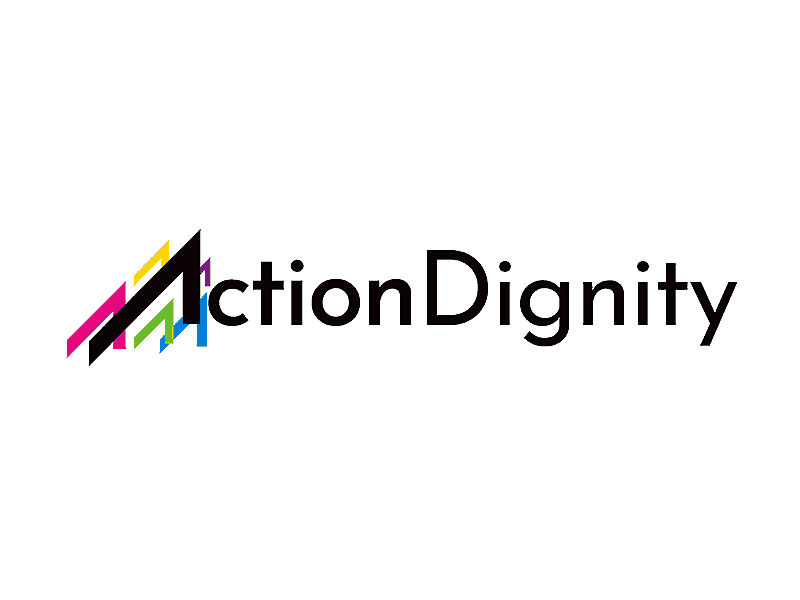
Grant – Project Support
Established with a vision of creating a just and equitable Calgary for all, ActionDignity is a community-based organization that amplifies the collective voice of ethnocultural, racialized, and equity-seeking communities, with a mission to collaborate with those communities and create transformational changes. Its approach is focused on catalyzing collective impact by building the capacities of grassroots ethnocultural organizations to strengthen their communities and bring about systems change.
This new grant builds on the Brave Workers project and will support ActionDignity in further empowering racialized essential workers to better understand and advocate for their rights. The new project will have three main components, including (1) community engagement and capacity-building for racialized essential workers and ethnocultural communities, (2) establishment of a Knowledge Hub and Resource Centre for immigrant workers, and (3) systems change and policy advocacy. With this new project, ActionDignity will expand its reach to 1,500 workers and will direct its efforts toward meatpacking workers from other plants in Calgary, as well as other essential workers, including health care aides.

Project Support
African Bridge Network creates a supportive environment helping African and skilled immigrants leverage their qualifications and experiences to maximize their potential in Massachusetts. ABN uses a comprehensive integration approach to bridge gaps and fulfills its mission through orientation workshops, advocacy, and specialized programs providing access to resources, mentorship, and professional networking opportunities. In 2022, ABN launched the Untapped Talent Consortium with five human services agencies (Bay Cove Human Services, HMEA, Thrive Support & Advocacy, Advocates, and Venture Community Services) to develop model solutions transforming how human services agencies can effectively support immigrant employees and to create a pathway for systemic change in the human services industry in Massachusetts. The five agencies have identified solutions they will prioritize going forward.
This renewal grant helps ABN continue partnering and supporting these five agencies to implement and integrate their solutions and initiatives across their organizations and expand the number of consortium members.

Grant
Alberta International Medical Graduate Association (AIMGA) works to integrate International Medical Graduates (IMGs) into the Canadian healthcare system through various services such as new member orientation, study groups for licensing examinations, career transition programs etc. AIMGA’s vision is to improve healthcare through the re-engagement of IMGs in Canada and support them.
With this grant, AIMGA is researching alternative health care careers for IMGs, such as allied technical assisting, and educational roles in healthcare and medicine, and working with employers to develop pathways for them to enter these fields. Building on AIMGA’s existing career transition program, this initiative aims to understand the perspectives of employers within those alternative health care careers and the challenges IMGs face in entering those jobs. The employers and IMGs are offered support, resources, and training to ensure the successful employment of IMGs into non-physician health and wellness careers.

Impact Investment
Apis & Heritage (A&H) is a BIPOC-led social impact investment firm that plans to disrupt intergenerational poverty and help to close the growing asset inequality gaps in the US by transitioning closely held private companies with meaningful workforces of color into employee-owned enterprises through Employee Stock Ownership Plans (ESOPs). A&H believes this transition will generate higher enterprise value and create better wages and significant retirement savings for the workforce, while also generating superior risk-adjusted returns for investors
By investing in A&H’s first-of-its-kind private equity fund, A&H will demonstrate how to transition companies to worker-owned at scale – potentially paving the way for a new market. A&H addresses a clear ecosystem gap in equity capital for business transfers to employees, now commonly identified in the field as a barrier to converting businesses to employee ownership. Moreover, this gap has often prevented employee ownership from being used as an explicit racial equity strategy. Available capital and technical assistance do not meet the needs of owners of color, who may have less liquidity.
General Operating
Article 47 is an initiative founded in 2021 that addresses systemic injustice through innovative philanthropy. Its leadership team, composed entirely of individuals from marginalized communities, has distributed more than $330,000 in rapid-response funding and larger grant initiatives to support causes often overlooked by traditional philanthropy. It prioritizes community-driven engagement and actively connects with marginalized communities to address systemic injustices. Article 47 works with a fiscal sponsor, the Quebec Public Interest Research Group at Concordia (also known as QPIRG Concordia).
This grant supports the operational and programmatic aspects of Article 47’s work, enabling it to continue and expand efforts in combating systemic issues and promoting social justice for BIPOC communities.

Grant – Project Support
Au Coeur de l’Enfance is an innovative norofit based in Montreal, Quebec, with an integrated model of services providing social, medical, and education support to children and their families, mainly in asylum-seeker and migrant groups with a precarious immigration status. Au Coeur de l’Enfance operates in the Saint-Laurent neighboood of Montreal. This neighbourhood is home to the majority of asylum seekers who settle in Montreal.
With this grant, Au Coeur de l’Enfance will pilot the new service delivery model, which will combine legal with social support, with the intention to scale the model if social impact is demonstrated. Au Coeur de l’Enfance will partner with Clinique de Justice Migrante, a newly established legal clinic and migrant rights advocacy organization, which will provide training on immigration issues to Au Couer de l’Enfance’s social support team and will be offering direct legal counselling to the families served. With this partnership, the Clinique de Justice Migrante will also facilitate access to legal representation for the families Au Coeur de l’Enfance supports.

Co-funding Partnership
Beati Foundation has been providing grants and non-financial support to groups fighting social inequalities and poverty throughout Quebec and has supported more than 839 projects to date. The foundation recognizes forms of systemic oppression and aims to support initiatives based on furthering the common good and geared toward profound social and ecological transformation.
Beati Foundation, through its annual grantmaking process, provides 90,000 three-year grants to grassroots in Quebec to support their staffing needs. In addition, Beati Foundation receives several requests for smaller donations from these groups throughout the year to support their operating costs and immediate priorities. will allow Beati Foundation to increase amounts of funding it offers selected organizations involved in immigrant, refugee-serving, and anti-racism efforts in 2023 and provide additional resources for ad hoc discretionary funding requests by organizations in this category throughout the year.

Project Support
Founded in 2017, Better Future Forward (BFF) is a social enterprise leading a movement for education finance reform in the current higher education system. BFF believes all hardworking students deserve access to financial support, regardless of their background. Students from immigrant families disproportionately face barriers in acquiring and paying student loans due to lack of access to in-language resources and limited or no access to mainstream financial services and products. BFF provides students with an Income Share Agreement (ISA), a financial product wherein students receiving funding for education agree to make a fixed number of income-determined monthly payments after they leave school. Students only have an obligation to make payments in months when they are earning above a minimum amount.
This grant is investing in a new, critical layer in BFF’s student engagement efforts: a student and alumni advisory board that enlists a core group of young people to address strategic questions on the overall direction of the organization and how it approaches its mission. Developing this group of students and alumni who can provide information from their lived experience, as immigrants or as BIPOC, will strengthen BFF’s mission.
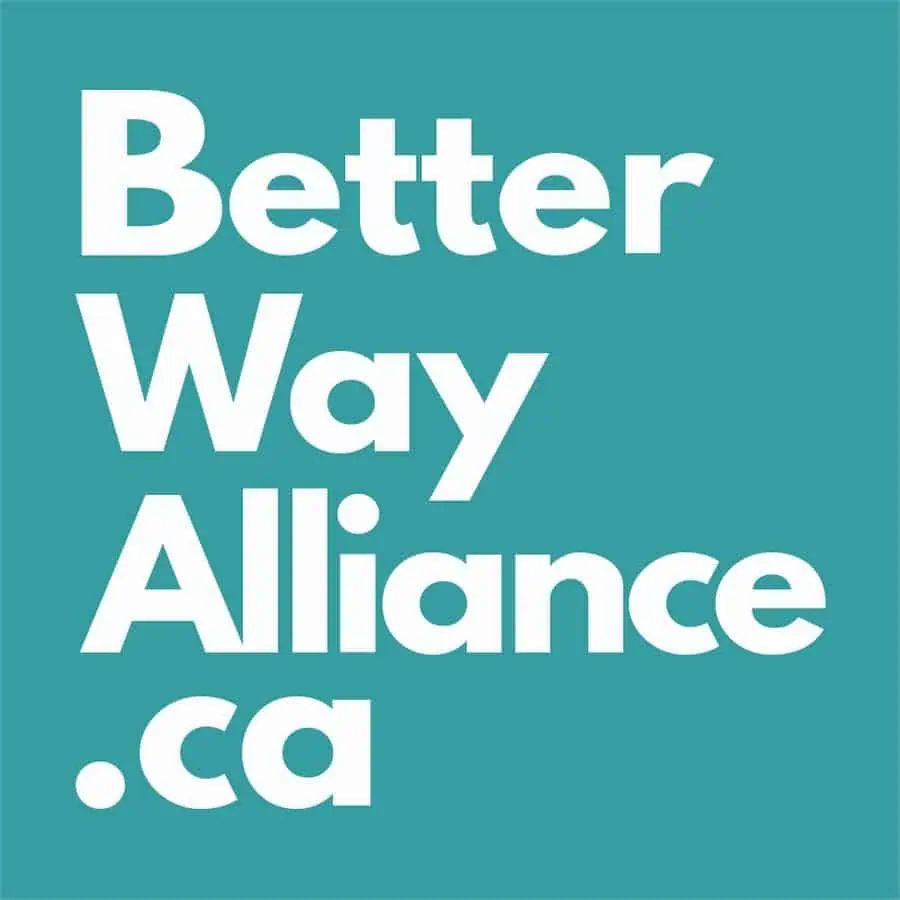
Grant
Better Way Alliance (BWA) is a coalition of business owners and employers that support decent work practices, such as fair wages, paid sick days and fair scheduling laws. BWA members employ more than 30,000 workers in Ontario and the industries range from services, retail, food and beverage to manufacturing. BWA provides its members with space to discuss decent work practices, supports them in their advocacy efforts, and offers public exposure as decent work businesses.
BWA is expanding its advocacy, capacity building, and policy change work. They are building on their research to develop a series of action-oriented case studies focused on key issues that racialized, immigrants, and workers in low-wage jobs face when it comes to decent work. Each report will build a business case for specific practices and propose tips and resources on how business owners can implement it into their own businesses. BWA is offering workshops and outreach programs focused on finding employers with decent work practices, especially the ones that are immigrant-owned or employ immigrant workers. These employers will be supported to act as leaders to advocate for decent work and grow the movement.

Impact Investment
Blackstar Stability (BSS) is a leading, mission-oriented, Black-owned real estate investment firm. The Blackstar Stability Distressed Debt Fund Program is a private debt fund that seeks to tackle the racial wealth gap and stabilize families and neighborhoods by facilitating ownership of affordable single-family houses, keeping families in their homes, enhancing homeownership, and disrupting predatory lending practices. The Distressed Debt Fund acquires nonperforming loans and contract for deeds at discount, works with homeowners to convert the assets into performing mortgages, and finally sells the mortgages into the secondary market.
This investment will support BSS’s mission of building wealth through providing increased access to homeownership in immigrant communities, Black and Indigenous communities, and other communities of color that are currently impacted by contract for deeds and other predatory instruments. With this grant, the Distressed Debt Fund will serve 9,000 families and estimates that homeowners in its portfolio will accumulate an average of $29,000 in home equity over a 5-year horizon, helping to grow family net worth and address the racial wealth gap and transferring over $125 million of equity to families.

Impact Investment
Boston Impact Initiative (BII) is a nonprofit impact investing organization focused on supporting entrepreneurs of color and building financial, social and political power for people and communities of color.
With this investment from WES, BII will continue to empower communities of color across the Northeastern United States to build power, climate resilience, and economic prosperity. This funding will fulfill the previously unmet need to invest in small and medium social enterprises through a trust-based approach.
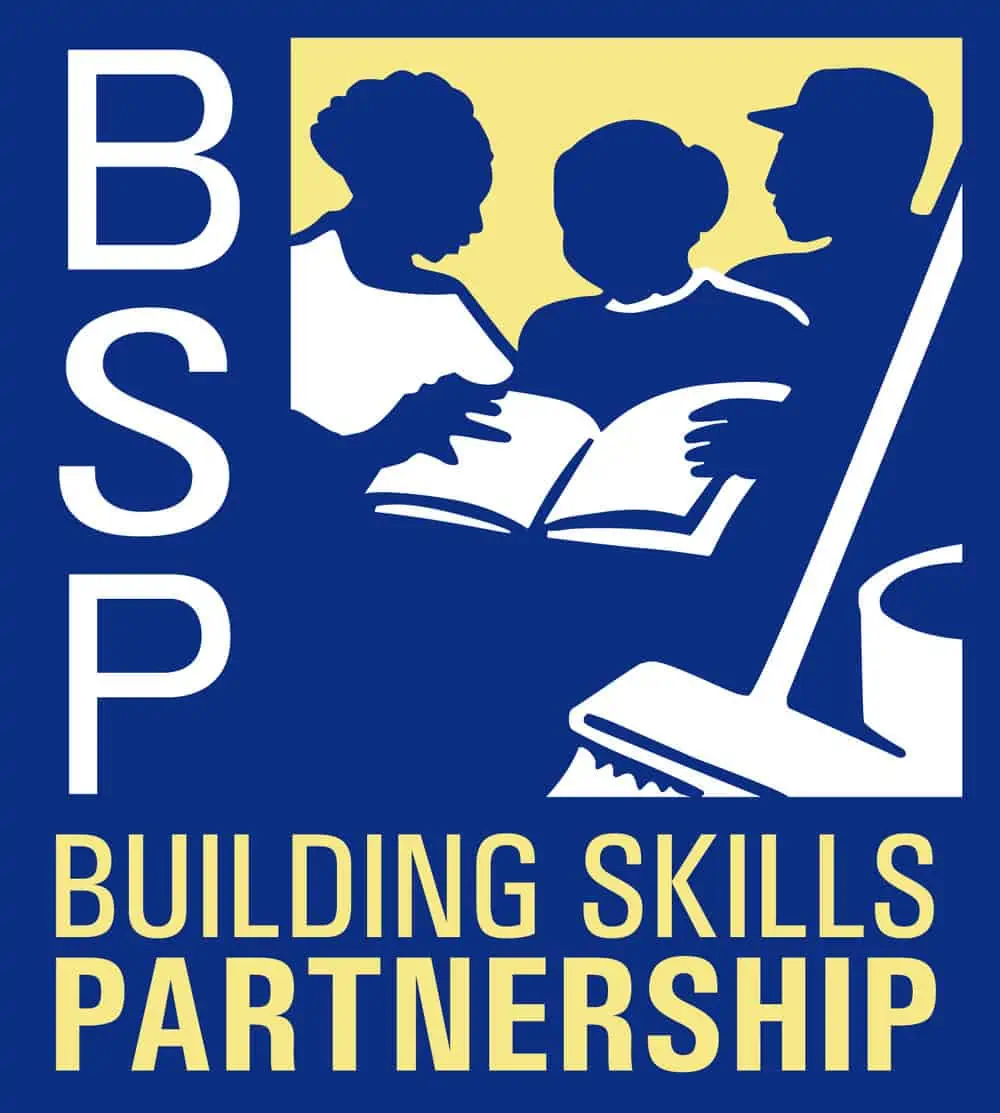
Grant – Project Support
Building Skills Partnership (BSP) is a California statewide organization whose mission is to improve the quality of life for property service workers and their families by increasing their skills, access to education, and opportunities for career and community advancement. BSP represents property service workers, the majority of whom are Latinx immigrants in low-wage janitorial positions. Recognizing that the needs of workers go far beyond the workplace, BSP takes a holistic approach and strives to create an equitable future for its clients and their families. BSP currently serves 5,500 workers in California each year, and links responsible businesses directly with the service employees union.
This grant will help scale BSP’s work and develop new career pathways programs. Amid COVID-19 and as the economy reopens, BSP is undertaking critical efforts to ensure worker safety and help career pathways programs evolve to meet the needs of workers and employers. Because of COVID-19 and the overall need for better safety and preparedness, BSP is developing an industry-recognized Infectious Disease Certification training as a pathway to career and economic mobility. Also, in light of COVID-19, BSP is exploring alternative service delivery models to support workers who have low levels of digital literacy, limited access to Wi-Fi and equipment, and limited English proficiency. BSP’s impactful work with janitors, airport workers, and other property service staff can serve as a model for other organizations looking to create viable career pathways for similar frontline and service sector workers, many of whom earn low wages and struggle to become economically mobile.

Grant – General Operating Support
The Canadian Centre for Nonprofit Digital Resilience (CCNDR) was launched in March 2022 with a vision of a digitally enabled non-profit sector where Canada’s diverse non-profits use data and tech to advance their mission and multiply their impact.
With this grant, the Fund will be joining other funders that have already committed to supporting CCNDR’s operations for the next three years. More specifically, the Fund’s grant will be allocated for staffing and other costs associated with the Digital Leadership for Gender Justice initiative that CCNDR will be launching in 2023. For this initiative, CCNDR will establish a research and development consortium to co-design a program focused on Canadian organizations serving immigrant and refugee women. The initiative will explore ways to leverage opportunities presented by virtual service delivery, digital technologies, and data as well as how to adopt new technologies and use data in a safe, secure, and responsible way.
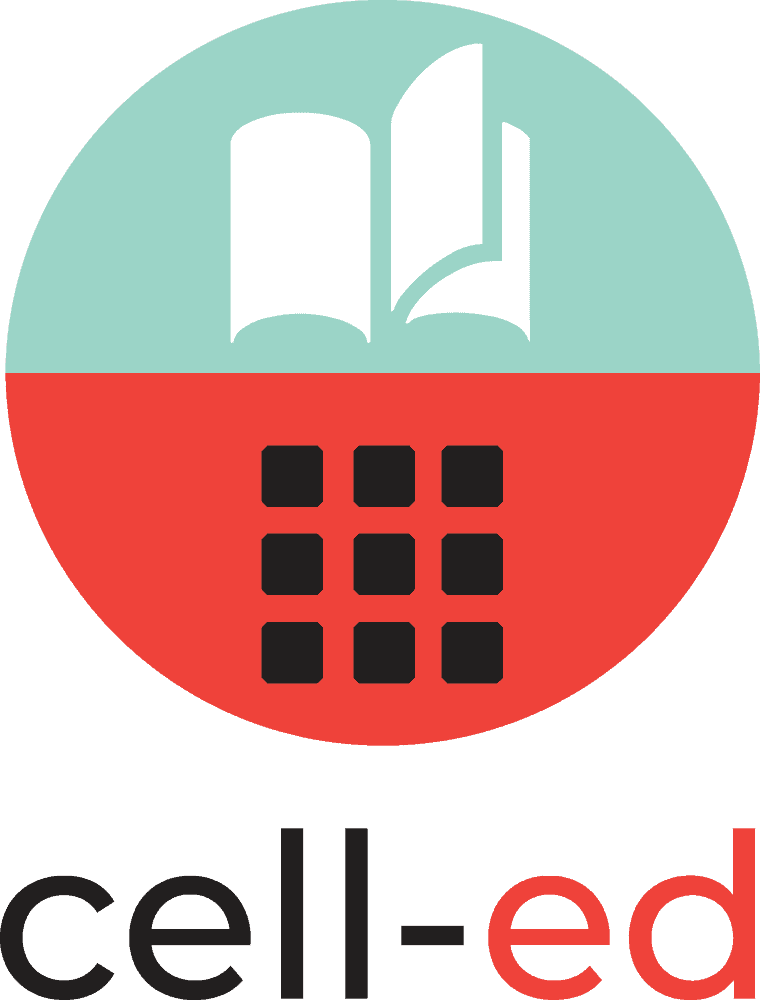
Impact Investment
Cell-Ed is an early-stage mobile-first education technology company that helps workers attain essential life and job skills more effectively. Founded in 2014 by Jessica Rothenberg-Aalami, Cell-Ed’s platform supports English language learning, sector-specific training, and the digital literacy needs of immigrant workers. Tens of thousands of adults currently use Cell-Ed’s platform, courses, and content to experience 84 percent faster skills gains. Learners access Cell-Ed through partner organizations that include education providers and employers in the United States and worldwide.
Since its inception, Cell-Ed has been an innovator in providing access to educational content to individuals in low-wage jobs. Originally created to serve Latinx immigrant women in California, Cell-Ed has developed a tool whose robust content enables learners to listen to lessons on a flip phone, from anywhere, at any time. Ninety percent of Cell-Ed’s current users are Black or Latinx, and the vast majority are also first- or second-generation immigrants. The opportunity gap experienced by workers with low literacy or low educational attainment in low-wage jobs is daunting. The Fund’s investment will enable Cell-Ed to expand the reach of its core mobile skill-building product, invest in its people, and launch new products and forge new partnerships that work to bridge the opportunity gap and position Cell-Ed learners to advance in high-growth sectors, such as health care.

Grant
The Centre for Civic Religious Literacy (CCRL) is a non-profit that aims to foster an understanding about religious, spiritual, and non-religious people so that individuals can live and work better together. CCRL is partnering with Temiskaming Shores & Area Chamber of Commerce (TSACC), the Rural Development Network (RDN) and Religious Freedom and Business Foundation (RFBF) for this project.
Temiskaming Shores & Area is a small, 30,000 resident, highly homogenous region in Ontario with a strong desire to welcome and recruit immigrants and refugees but an inability to attract and retain them successfully. To create a welcoming and inclusive space that entices recruitment and promotes retention of immigrants, the four partners are piloting a faith-based employee resource group (ERG) that will showcase the needs of local immigrant and refugee populations and enable employees to connect with others with similar or different faiths or ethnical and cultural identities.

Grant – General Operating Support
Center for Southeast Asians (CSEA) is a non-profit organization rooted in the community. It was founded in 1987 to serve those four Southeast Asian (SEA) communities: Cambodian, Hmong, Laotian, and Vietnamese. These communities were established in Rhode Island and in other states in the 1970s, 1980s, and 1990s, when refugees fled the violence and genocide in Southeast Asia that were unleashed by the Vietnam War. CSEA’s core mission is to promote the prosperity, heritage, and leadership of Southeast Asians in Rhode Island. Throughout the years, the organization has expanded its mission to serve other ethnic minority communities, including a sizable Latino community and new refugees from Bhutan, Liberia, Myanmar, Nigeria, and Syria.
With this grant, CSEA seeks to support Southeast Asian Americans who have limited access to well-paying jobs and lack English literacy skills. To address these issues, CSEA will expand its current adult literacy and employment effort, which provides various programs, including a three-part adult literacy program, a financial literacy coaching and education program, and professional development training in nursing, carpentry, pipe fitting, welding, and HVAC. Additionally, CSEA will support immigrants who are small business owners and aspiring entrepreneurs, through business coaching, loans, and networking opportunities.
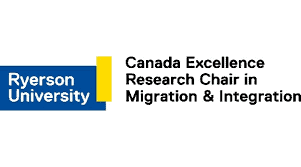
Grant
The Canada Excellence Research Chair (CERC) in Migration and Integration, launched by the Canadian Government at Ryerson University, aims to create innovative and accessible knowledge surrounding the connections between migration and post-migration processes, forced and voluntary mobility, internal and international migration, and the role of countries of origin and transit, including non-state stakeholders at local, national, and international levels. They disseminate their research through scheduled events enabling community and key stakeholders to access it.
This project is addressing the issues temporary migrant workers encounter in the agricultural sector. These workers account for half of Canada’s paid agricultural workforce and are often employed in conditions where discrimination, exploitation, and abuse are common. CERC in Migration’s “Fair Farm Work” project seeks to harness consumer power to drive change for agricultural workers by creating a Fair Work labelling scheme that outlines a set of guidelines that producers, suppliers, and distributors must meet to be certified. The project will entail learning from other fair work certification initiatives, especially in Europe and the U.S., analyzing current gaps in Ontario legislation regarding the regulation of farm work, building a fair work coalition of farmers, employer and worker associations, supermarkets and distributors, and local and regional authorities.

Grant – Project Support
Code the Dream offers free intensive training in software development to people from diverse low-income backgrounds. The ultimate goal of Code the Dream is to create a unique win-win that allows coders in the program to acquire real experience building apps that make the world a little bit better, and then use that experience to launch new careers that offer greater opportunity to themselves, their families, and their communities.
With this grant, Code the Dream is expanding and scaling its model beyond the 12 states where it currently works and building out additional physical hubs in Atlanta and Chicago. Following its successful rapid shift to remote instruction last spring, Code the Dream is also expanding its remote programming. With increased attention on skills-based recruitment and hiring to provide better opportunities to workers who have lower levels of formal education, Code the Dream’s work can help encourage employers to hire, invest in, and support immigrant and refugee workers.
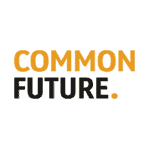
Impact Investment
Common Future equips local economy leaders, funders, investors, and policymakers with the relationships, knowledge, and resources they need to build economically empowered communities through equitable business and economic development.
WES and Common Future have partnered on Action Lab: Participatory Investing to demonstrate how to shift power and decision-making to communities. The WES-Common Future Action Lab on Participatory Investing will bring together a dozen funders for 12 months of peer learning and action. Funders will learn about, experiment with, and co-create new models and strategies for participatory investing within their own institutions and through a collaborative fund. The other funders are California Wellness Foundation, Alliance Healthcare Foundation, Footprint Foundation, Hyams Foundation, Fels Foundation, and Cienega Capital/Globetrotter Foundation.

Impact Investment
Community Credit Lab (CCL) is a nonprofit with a mission to provide lending programs for communities that are often excluded from traditional financing, including immigrants and BIPOC entrepreneurs. CCL works to navigate the traditional credit-based practices and facilitate equitable, community-led investment strategies and mitigate discrimination faced in the financial system. Since its inception in 2019, CCL has facilitated 5 lending programs with 10 lending partners.
A recoverable grant from the Fund will support CCL’s pilot lending programs for immigrants, BIPOC, and LGBTQ+ communities to access consumer and commercial loans. The programs will enable systemic change by analyzing the root causes of inequality in financial systems, improve access to credit using non-traditional qualification criteria, and create relationship-based lending through a trust-based and participatory model.
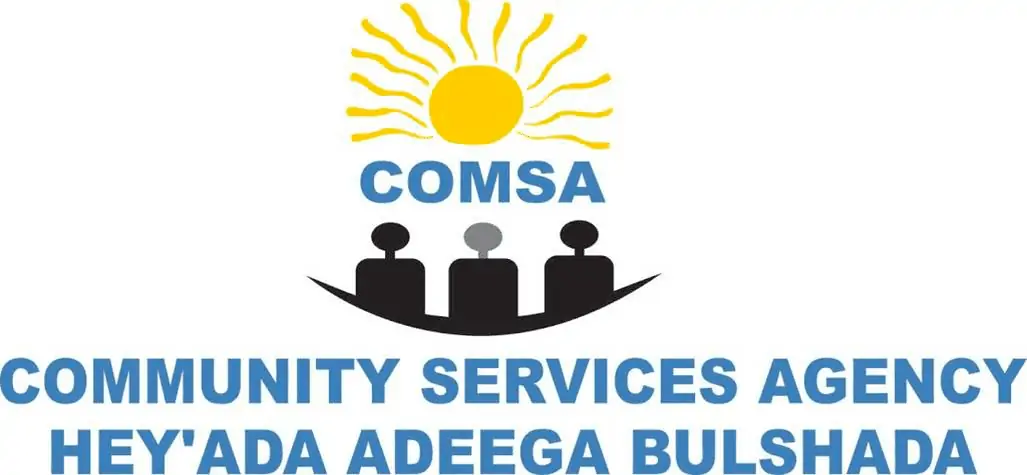
Grant – General Operating Support
Established to fill an existing service gap for refugee and immigrant communities in Northeast Wisconsin, COMSA (originally started as Community Services Agency Inc.) strives to create an environment that welcomes immigrants and refugees and provides services that support economic stability. These services include after-school programs, citizenship classes, youth leadership mentorship, English classes, and summer school programs.
This grant is supporting and scaling up COMSA’s essential work to provide services for resettled refugees. In 2022 alone, COMSA served 1,540 clients, provided nearly 2,000 hours to support language acquisition and academic achievement, and collaborated with Catholic Charities to host a cultural orientation program attended by 60 members of the Afghan community.

Impact Investment
The Dearfield Fund for Black Wealth is a new place-based investment fund that seeks to reduce the racial wealth gap in Denver, Colorado, by accelerating local Black homeownership. Launched by Gary Community Ventures in partnership with Denver’s Black community, the Dearfield Fund helps Black and African American first-time home buyers obtain access to no-interest down payment assistance to put toward the purchase of a new home as a means of building generational wealth. Additionally, the Dearfield Fund offers wealth-building resources to these homeowners through a robust wraparound program that provides pre-purchase, post-purchase, and wealth advisory services. The Dearfield Fund expects to support 500 Black homeowners, raising median wealth by $100,000 and resulting in $50 million of cumulative wealth creation.
With support from the WES Mariam Assefa Fund, the Dearfield Fund aims to revitalize historically Black neighborhoods. At least 60 percent of the investment will assist home buyers in six high-impact census tracts where there is strong potential to slow gentrification and build regional Black wealth. This grant will help to bolster the Dearfield Fund’s ability to demonstrate the impact and viability of a place-based investment approach focused on homeownership.

Project Support
Ryerson University has a unique mandate to meet societal needs through high-quality, professional, and career-related programs as well as scholarly, research, and creative activities. Ryerson is student-focused, providing an emphasis on experiential learning, creativity, entrepreneurship, adult learning, and alternative pathways for marginalized populations.
Established in 1999, the Ted Rogers School of Management’s Diversity Institute conducts and coordinates multidisciplinary, multi-stakeholder research to address the needs of diverse Canadians, the changing nature of skills and competencies, and the policies, processes, and tools that advance economic inclusion and success.
In recent research, Diversity Institute finds that racialized newcomer youth often encounter systemic challenges, including barriers to accessing post-secondary education, barriers to job placements and training programs, and barriers to securing employment. With support from the Fund, Diversity Institute will implement a program to provide language skills, digital skills training, counselling, and wraparound services for racialized newcomer youth, particularly Afghan refugees. The program will serve approximately 100 racialized newcomer young people in the Greater Toronto Area, Halifax, and Calgary.

General Operating
Documented, founded in 2018, is a non-profit newsroom that has become the go-to source for news, investigations, and resources focused on immigrant New Yorkers. Documented engages with its community of readers through a multilingual website; a Spanish-language WhatsApp-distributed newsletter called Documented Semanal that reaches 5,000-plus majority-undocumented New Yorkers; and the thrice-weekly Early Arrival newsletter, a roundup of top immigration news and Documented exclusives widely read by local immigration advocacy and service professionals.
Documented is leveraging this grant from the Fund to expand its reach with two new community-powered news services geared toward Chinese and Caribbean New Yorkers. The grant aligns with the Fund’s goal of advancing justice and inclusion through community-driven media and journalism for immigrants and refugees in the U.S. and Canada. Its aim is to shift the narratives and stories about immigrants and refugees, particularly in divisive moments.

General Operating
Ellis Island Initiative is a new statewide coalition of New York’s leading labor, business, faith, and advocacy organizations aiming to transform the state’s approach to integrating newly arrived migrant families into communities. The initiative highlights the benefits of welcoming new immigrants and strives to revitalize upstate local economies by filling open jobs in local industries and providing new opportunities for small businesses.
The grant is helping to ensure that upstate New York communities can welcome newly arrived asylum seekers and can benefit from the state’s historic investment in support of asylum-seekers.

Impact Investment
Employment Technology Fund (ETF) at JFFLabs partners with diverse entrepreneurs building early-stage future of work and employment technology solutions that help adults with low to middle incomes find, secure, and prepare for jobs that lead to economic advancement.
With this investment, ETF can bolster their ability to demonstrate the impact of their approach, invest in proximate leaders, advance economic mobility outcomes for our target population, and support more equitable and inclusive systems. The Fund’s investment is supporting an additional 30-40 early-stage ideas driving meaningful impact for immigrants, refugees, and communities of color.
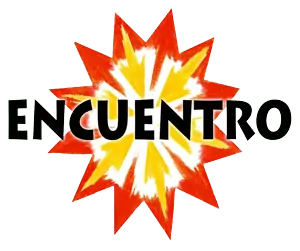
Grant – Project Support
Encuentro’s mission is to transform New Mexico into a thriving community for all its residents by engaging Latinx immigrant families in educational and career development opportunities that impart skills which enable work toward economic and social justice.
With this grant, Encuentro is growing its Home Health Aide program, an innovative and multiple-sector collaborative approach which addresses the economic integration barriers that Latinx immigrants encounter in New Mexico’s home health industry. Encuentro’s approach is engaging immigrant workers, particularly Latinx women, to create dignified and stable jobs for themselves, while transforming economic systems that are inherently stacked against immigrants, people of color, and women. Encuentro’s worker-centered approach provides an important alternative to the profit-centered industry model, and supports low-income caregivers to develop critical skills, improve earnings, and shape policy, while also improving access to higher quality care for the elderly community.
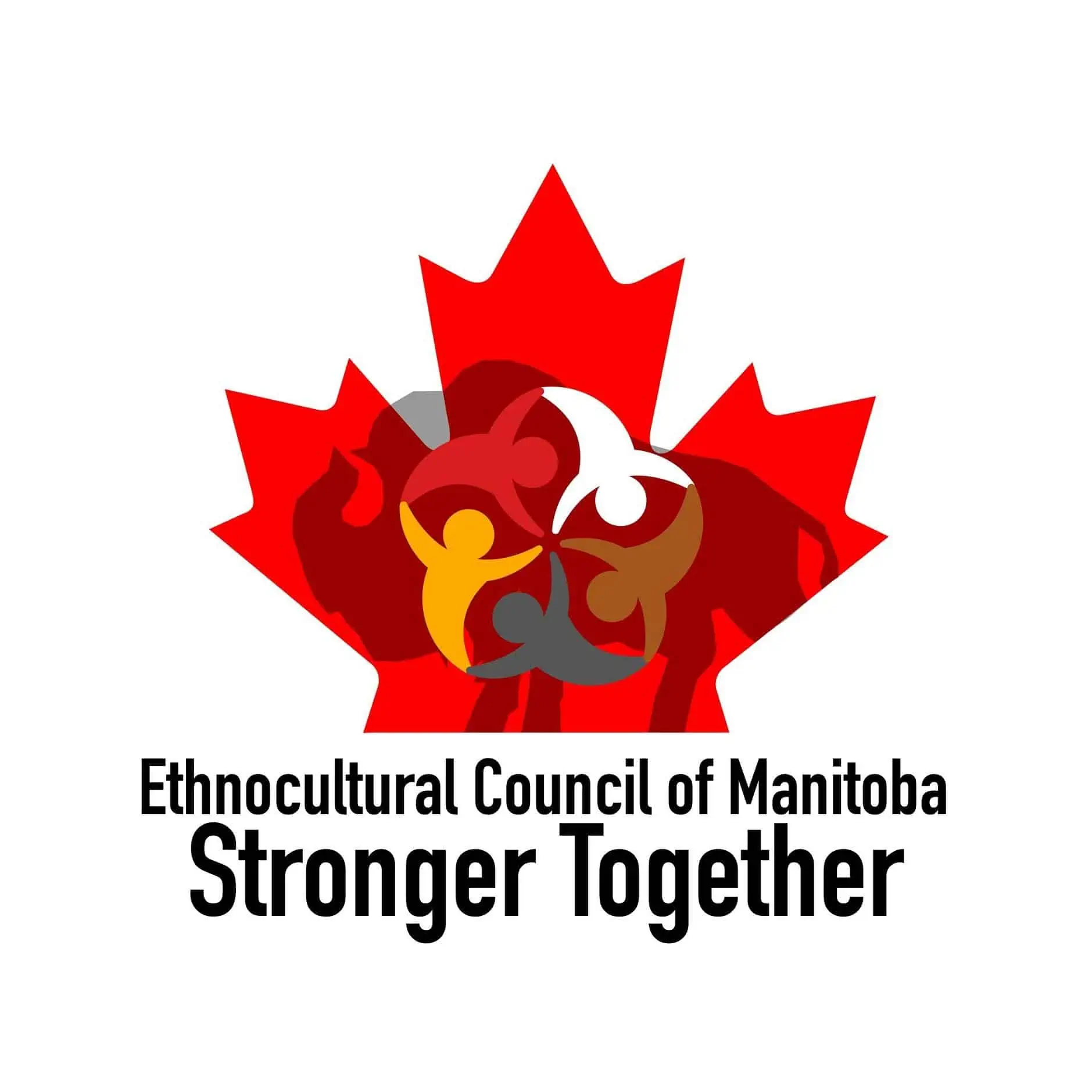
Grant – General Operating Support
The Ethnocultural Council of Manitoba (ECCM) is a shared space where diverse ethnic communities come together to provide an empowering platform and collective voice with equal representation for immigrants, refugees and visible minorities working to make Manitoba a welcoming and inclusive province.
With this funding, ECCM is supporting access to COVID-19 information and challenges misinformation and hesitancy in ethnocultural communities in Winnipeg. They are also working to increase access to the COVID-19 vaccine to isolated BIPOC and newcomer communities who face language barriers. The funding will enable ECCM to create oral storytelling videos in numerous languages to showcase BIPOC women, youth and seniors.

Project Support
Foundation for Environmental Stewardship (FES) is a youth-led, youth-serving nonpartisan sustainable development organization. It is accredited by the United Nations (UN) and has a special consultative status with the Economic and Social Council of the UN and UN Environment Programme. FES empowers youth to create a more inclusive, fair, prosperous, and sustainable future.
FES is implementing a multi-year climate justice partnership, using a participatory and collaborative process to develop a support program for BIPOC and newcomer youth to explore climate activism, test and pilot ideas, and scale those ideas for impact. The partnership aims to increase participation of BIPOC and newcomer communities in climate justice activism, empower BIPOC leaders to implement and scale sustainable initiatives, and equitably disburse funds to BIPOC groups. The partnership also anticipates an increase in intergenerational partnerships, capacity-building opportunities, network growth, and culturally relevant resources for BIPOC youth interested in climate justice.

Project Support Grant
The Future of Good is a digital media organization covering Canada’s social impact world. Future of Good journalism illuminates how technology, finance, entrepreneurship, international development, work, and inclusion are changing social impact post-pandemic—from corporate social responsibility to philanthropy, social services to impact investing. The organization partners with diverse entities across the country to illuminate a topic or question both parties agree is worth asking, investigating, and amplifying for the social impact world. This type of collaboration is not sponsored media, but rather a digital partnership that explores topics that matter together.
This grant is supporting the continuation of an editorial fellowship focused on inclusion and anti-racism. Working as a member of the Future of Good editorial team, the fellow is a journalist covering and reporting on the effects of systemic racism in communities across Canada. Coverage will also examine how inclusion and anti-racism programs and initiatives are performing and adapting to community needs.

Grant
United Way of Southern Maine serves as the backbone organization for the Greater Portland Workforce Initiative (GWPI), a collective impact project of 21 stakeholders, including representatives from employers, education/training providers, funders, federal, state, and local government, non-profit organizations, and community and economic development organizations. GWPI’s goal is to help eliminate barriers to entering or remaining in the workforce for five target populations who face significant obstacles to steady and sustainable employment, including immigrants and refugees.
With this grant, GPWI is developing a system for employers to become better equipped and more confident in hiring, promoting, and retaining more immigrants and refugees, including internationally trained individuals working in roles not commensurate with their professional background and experience. The initiative will serve a growing immigrant community in southern Maine, in addition to a wide range of employers. The proposal adopts a multi-faceted approach to bridging the gap between internationally trained job seekers and employers, addressing needs through a systemic lens to target root causes and strategies to achieve immediate programmatic benefits.
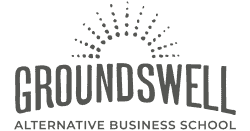
Grant
Groundswell School provides alternative education that prioritizes students’ lived experiences, challenges toxic systems, and helps to build collective power to change the status quo. Groundswell students are social entrepreneurs, intrapreneurs, community organizers, and non-profit leaders with varied intersectional backgrounds who are systematically underrepresented in leadership and entrepreneurship. Since 2013, Groundswell has served over 250 individuals with their social entrepreneurship and self-employment programs, helping to create over 75 jobs.
This grant is supporting the design and launch of a train-the-trainer version of Groundswell’s Leadership for Social Change course, an inclusive, trauma-informed, anti-oppressive, and intersectionality-feminist approach to leadership and career development training. The 6-month program will provide an adaptive approach for community leaders and organizers who serve immigrant women through their jobs or ventures to learn to facilitate person-centered, strengths-based leadership and livelihood development. Trainees will receive support to pilot and test the Groundswell approach within their communities and will be provided wraparound services during the program.
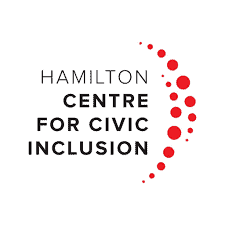
Grant – General Operating Support
The Hamilton Centre for Civic Inclusion (HCCI) was formed in 2006 as a result of the work undertaken through the Strengthening Hamilton Community’s Initiative, which was formed as a response to the burning of Hamilton’s Hindu Samaj Temple in 2001, following the 9/11, terrorist attacks in the USA. HCCI’s short-term objective was to deal with the distress in the community caused by the burning of the Temple and then evolve as a civic resource center to create an inclusive and welcoming city through respecting diversity, practicing equity, and speaking out against discrimination.
With this funding, HCCI is working with health experts and community organizations to ensure BIPOC and newcomer communities have access to COVID-19 vaccines and COVID-19 related information. The organization hired a COVID coordinator to support their COVID-19 vaccine clinic, which has vaccinated thousands of Hamilton residents. They host public town halls, creating informational COVID-19 videos in numerous languages for ethnocultural organizations.

Grant – General Operating Support
Immigrant Advocates Response Collaborative (I-ARC) is a coalition of legal advocates that works to increase access to justice and counsel for all immigrants in New York. I-ARC was born out of the “Muslim Ban” of 2017 when hundreds of New York state lawyers came to JFK Airport in an effort to help those affected by the new policy. A few weeks later, the lawyers met to discuss their experiences since they first met and brainstorm creative solutions for the future. This network soon became I-ARC. Through their network, I-ARC fosters a collaborative environment among legal advocates in the area, which allows for knowledge sharing to better support immigrant communities, quick and collective responses to challenges as they arise, and a united front as they challenge anti-immigrant policies and confront inequalities faced by immigrant communities in the legal system.
With the Fund’s support, I-ARC will hire an attorney experienced in both immigration systems whose role will be to build relationships and foster this cross-border collaborative network. Created to assess and communicate existing and emerging migration-related issues occurring alongside the U.S-Canada border, this network will facilitate the creation of innovative solutions that provide an effective and collaborative approach to lawful mitigation while preserving border security and public safety. This network will be developed in conjunction with several key partners both in the U.S. and Canada, including I-ARC members currently working on the U.S. northern border, the American Immigration Lawyers Association, the Canadian Association of Refugee Lawyers, the litigation team working on the challenge to the Safe Third Country Agreement before Canada’s Supreme Court, human rights organizations working in the U.S. and Canada, and others who will be included as the network grows.

Grant
The Immigrant Workers Centre (IWC) is a Quebec-based organization that defends the rights of immigrants in their workplaces and fights for dignity, respect, and justice. It was founded in 2000 by a small group of Filipino-Canadian union organizers along with their academic and activist allies. The organizers saw that unions were not meeting all the needs of workers. The IWC emerged to address the needs and concerns of workers.
With this grant, IWC is expanding its ongoing advocacy, capacity-building, and policy change work. They are building workers’ collective leadership to amplify their voices in the public sphere supporting labour rights ambassadors. IWC is also working to ensure that workers can defend their rights in the workplace by providing workshops on labour standards, health and safety and immigration law. IWC’s approach is to bring these groups of workers with various situations into a council which will institutionalize the work of ambassadors to change the status quo. IWC will also continue advocating better working conditions for workers (e.g., to raise the minimum wage to $18) and providing legal advice and support to workers.
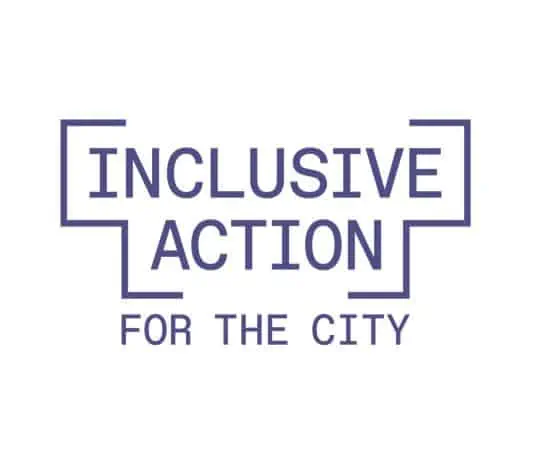
Grant – Project Support
Inclusive Action for the City addresses the root causes of poverty by merging good urban policy with sound economic development initiatives that reduce barriers, increase opportunity, strengthen local economies, and empower low-income residents and entrepreneurs. Inclusive Action partners with communities to prototype innovative, scalable solutions that can contribute to systems change.
Inspired by Inclusive Action’s advocacy work alongside street vendors, their Semi’a Fund loan is designed to support entrepreneurs, many of whom are immigrants, who cannot secure capital from traditional lenders yet need it to expand or formalize their business. By scaling this program, Inclusive Action envisions opportunities to increase direct lending, advise partners who are developing their own initiatives, and build capacity within other community-based programs. Flexible lending and financial support are particularly important amid the economic slowdown, which has affected many immigrant entrepreneurs.

Impact Investment
Isempower is a mission-driven technology platform that supports international students by matching them with relevant jobs and offering job search skill-building and mentorship opportunities. Isempower is enabling higher education institutions to attract and support the growing population of international students at scale while helping employers hire educated entry-level candidates.
The investment will support Isempower’s goal of advancing its technology platform, building out a product that could help hundreds of thousands of international students critical skills, secure meaningful employment, and navigate the path to economic and social inclusion. At this early stage, WES would be Isempower’s first institutional investor, providing an important signal to the market and potentially attracting additional institutional capital.
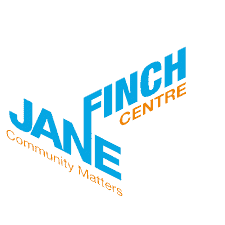
Grant – General Operating Support
The Jane and Finch Centre is a multi-service, community-based organization focusing on poverty reduction through resident engagement, capacity building and anti-oppression. They have a long history of innovation and response to community needs and priorities. For over 44 years, the organization has strategically built the health and well-being of Jane and Finch in collaboration with residents, community leaders, community groups, organizations and partners from within the local community and beyond.
With this funding, Jane and Finch is implementing the Youth Vaccine Outreach Animator, which will create COVID-19 vaccine interventions on social media and in-person and provide vaccine referrals to youth (ages 12 – 21) living in Jane-Finch and Black Creek community.
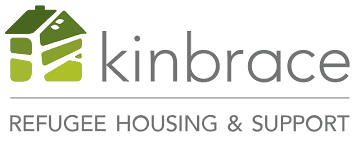
Grant
Kinbrace Community Society (Kinbrace) aspires to grow transformative communities where refugee claimants flourish through housing security, protection, legal support, and job opportunities, and by supporting wellbeing and cultivating belonging. For parts of this project, Kinbrace is partnering with Launchpad, an organization that supports new Canadians, permanent residents, convention refugees and refugee claimants recertify and reskill or upskill to work in the same field as they did in their country of origin.
This initiative aims to address three key barriers faced by refugee claimants when trying to achieve financial mobility in Canada: discriminatory preconceived notions, lack of targeted opportunities, and a need for recertifying, reskilling, or upskilling to gain meaningful employment. Kinbrace is convening refugee claimant employment roundtables to help break down employment barriers, as well as creating a centralized repository of employment, volunteering, networking, and educational opportunities for refugee claimants. Kinbrace is also launching a campaign to promote the employment successes of refugee claimants, both from the refugee claimant’s perspective and the employer’s perspective.

Impact Investment
Founded in 2020, MICC Financial (“MICC”) is a financial technology startup that has built a platform to help groups of people and individuals save money, access capital, and build credit. The company’s platform helps their clients save as a group and improve their financial well-being, enabling them to solve financial challenges and achieve their goals. Founded by immigrants, MICC has a target segment focus on supporting newcomers and immigrants without credit history.
With support from the Fund, MICC would bolster their ability to demonstrate the impact of their approach, build its product, advance financial health outcomes for their target population, and support more equitable and inclusive systems. Access to credit is an asset for individuals to pursue economic opportunities and enhance financial security. However, credit invisibility is a significant problem for Canadians, with 35.3% of the population being credit invisible. Credit invisibility is caused largely by structural issues within Canada’s data markets. To bridge this information gap in the credit system and unlock opportunity, MICC is digitizing the informal rotational savings and credit association model to allow users to establish payment history with their own funds, with no interest fees.

Grant – General Operating Support
The Migrant Workers Alliance for Change (MWAC) is a membership-based, migrant-led organization that supports migrants across Canada in accessing basic rights and services. MWAC supports the formation of migrant worker peer support groups in their workplaces, communities, and schools, both in person and online. In December 2018, MWAC founded the Migrant Rights Network (MRN), the most impactful organization for systems change regarding migrant issues in Canada, allowing over 40 migrant-led organizations across the country to share updates, strategies, and expertise with each other.
With this general operating support grant, MWAC will continue its much-needed and impactful work supporting worker organizing, advocacy of policy and systems change, and ensuring that migrants have access to rights and services, as well as its coordination of provincial and nationwide migrant-led organizations through the Migrant Rights Network. Among the key focus areas for MWAC in the next two years are increasing its number of members and trained organizers, developing a single hotline for all migrant workers and a comprehensive cross-country referral system, and expanding the Migrant Rights Network.

Project Support
Mi’kmaw Native Friendship Society’s mission is to improve the lives of Indigenous peoples living in urban environments through social and cultural programming. This mission is achieved by promoting the educational, cultural, and economic advancement of Indigenous people, assisting in locating shelter for Indigenous peoples in the Halifax/Dartmouth regional area, and encouraging the active participation of Indigenous people in all aspects of society.
With a new grant from the Fund, Mi’kmaw Native Friendship Society will implement its program Participatory Canada to support community resilience. Participatory Canada will address critical post-pandemic recovery challenges of economic, social, and climatic dimensions, all of which need to be tackled through improved social infrastructures that reduce polarization and strengthen social bonds. This initiative is aimed at serving newcomers to Canada as well as immigrant and refugee communities. Its unique approach creates conditions for neighbours to work better together in times of crisis and disaster and helps embed reconciliation, equity, and capability building into everyday community life.

Impact Investment
Mission Driven Finance (MDF) is a certified B Corporation and impact investing firm committed to closing financial and opportunity gaps. MDF Capital Partners (MDFCP) is MDF’s first fund, structured as a national private credit portfolio and created with expert community partners across the U.S. The fund uses an intentional approach to accelerate inclusive and equitable access to capital, reducing the time to impact for community-based investment initiatives and promoting greater economic opportunity for small businesses.
This new grant from the WES Mariam Assefa Fund will bolster MDF’s ability to demonstrate the impact and viability of its approach and crowd in additional institutional investment. The grant will support MDF’S aim of providing flexible financing and delivering the right capital at the right time, including non-dilutive loans, revenue-based financing, revolving facilities, Islamic finance, and special purpose vehicles. MDFCP will prioritize organizations owned or led by people from historically marginalized groups such as immigrants, refugees, Black people, Indigenous people, and other people of color, or that directly benefit people from these groups. It will target impact-driven initiatives that advance economic opportunity but face capital gaps. MDFCP will focus on “missing middle” transactions of amounts between $150,000 and $1.5 million.
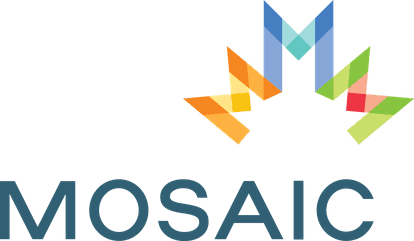
Grant
MOSAIC is one of the largest settlement organizations in Canada, serving immigrant, refugee, and other communities since 1976. They provide a broad range of services including settlement assistance, English language training, employment programs, interpretation and translation, and counselling services. The Alliance for Doctors Denied by Degree is hosted by MOSAIC and works in partnership with the Canadian on Paper Society for Immigrant Physicians Equality (COPSIPE), the Association of International Medical Graduates of Alberta (AIMGA), the Society of Canadians Studying Medicine Abroad (SOCASMA) SFU Refugee Livelihood Lab, and the Foundation of International Medical Graduates. These partners will be actively involved in this project.
This project is challenging the systemic discrimination faced by immigrant and refugee physicians who are citizens and permanent residents of Canada. MOSAIC will collect and analyze disaggregated data from the key medical and government bodies that International Medical Graduates (IMGs) interact with for their licensure and residencies. The project will also entail interviewing IMGs to collect demographic and quantitative data to compare the data collected from the data sources and identify any missing data. The data collected will help develop equity-focused interventions to help reduce existing disparities for IMGs.
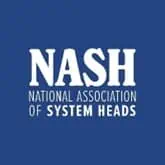
Project support
The National Association of System Heads (NASH) serves as a forum for the exchange of views and information among its members and leverages its network to advance innovation in public higher education. Its cross-system collaboration has focused on increasing student access and success in college, especially that of low-income students and students of color. NASH represents 65 state systems and 75 percent of all U.S. public post-secondary students.
This grant from the WES Mariam Assefa Fund will aid NASH’s efforts to raise awareness of the leadership role played by public systems of higher education in refugee resettlement, provide additional support to current and future refugee student and refugee family programs, and in the future help procure funds from the federal, state, and private sectors. NASH is committed to helping a growing number of its member institutions in their efforts to become reliable sources of refugee resettlement support. With this grant from the Fund, NASH will continue to expand educational access and bring new opportunities for private sponsorship of refugees and their families at both the state and national levels.
Project Support
The National Dignity for Families Fund (DFF) was launched in 2021 to address the humanitarian needs of children and families seeking asylum in the United States. Since its inception, DFF has raised US$18.47 million, creating direct grants that have supported 82 organizations on the front lines of key borders.
The WES Mariam Assefa Fund is providing multiyear funding to DFF’s work in New York City and supporting its new organizational development (OD) program participants. The funding is also providing follow-up support to DFF’s 2023 grantees and helping to identify and assess proximate leaders for their OD programs, prioritizing those ready to engage in organizational development.

Project Support
The National Fund for Workforce Solutions is a national network of almost 30 communities taking a demand-driven, evidence-based approach to workforce development. Its mission is focused on collaboration with workers, employers, and communities to advance a skilled workforce, promote good jobs, and invest in equitable outcomes.
The Fund is supporting the Healthcare Immigrant Workforce Project, which leverages the expertise and peer-learning model of CareerSTAT, a national network of more than 300 health care employers and partners, to share workforce development innovations, best practices, and outcome-based initiatives that would help immigrant frontline health care workers build skills, advance their careers, and achieve family-sustaining wages.
A renewal grant from the Fund is supporting CareerSTAT’s work with frontline immigrant health care workers, prioritizing storytelling to elevate CareerSTAT employer partners as thought leaders in the health care sector and in workforce development.

Project Support
The New Mexico Dream Team (NMDT) is a statewide network committed to creating power for multigenerational, undocumented, LGBTQ+, and mixed-status families. Through trainings and leadership development, NMDT works to engage the community and allies in becoming leaders, using an intersectional, gender, and racial justice lens to develop and implement an organizing and advocacy infrastructure for policy change that dismantles systematic oppression.
This grant is supporting NMDT to continue developing Puentes No Barreras (Bridges Not Barriers), a program formed to create and expand pathways of opportunity for immigrant and undocumented workers. With a unique training curriculum training developed with and for employers, educational institutions, and immigrant students and job seekers, the program helps establish a shared ecosystem of mutual understanding, support, and prosperity in New Mexico.

Impact Investment
New Power Labs (NPL) is a non-profit partnership to build a more transparent, inclusive, and equitable financial future in Canada.
With this grant, NPL will accelerate access to, and allocation of, capital for communities and groups that are often excluded, such as immigrants. There is systemic bias and discrimination in how capital flows, disproportionately affecting underrepresented communities – NPL’s initial research suggests Canadian foundations almost exclusively invest in white or male impact fund managers. NPL seeks to disrupt the status quo through its inclusive collective impact platform. This grant would fund NPL to design and execute six different programs to strengthen research initiatives, education curriculum, and general operations.

Grant – General Operating Support
Oakland Bloom’s mission is to advance economic equity and create pathways to business ownership for poor and working-class refugee and immigrant chefs in Oakland, Calif., by providing food entrepreneurship training, income-generating opportunities, and hands-on support to aspiring chef entrepreneurs from refugee, immigrant, and low-income communities who are seeking to launch their own food businesses.
The WES Mariam Assefa Fund is supporting two new initiatives at Oakland Bloom. The first, a collectively owned commissary kitchen, has been a long-time goal for the organization. Oakland Bloom is working to complete the buildout and launch of a space for the kitchen collective in partnership with worker-owners. Oakland Bloom is also exploring opportunities to launch a restaurant group cooperative that will provide start-up funds, back-end technical support, and shared financial risk to new food businesses. The cooperative model will center chef leadership, decision-making power, and equity in the new businesses.

GOS
One Fair Wage (OFW) is a national movement-building organization, led by women of color, that organizes service workers, employers, and consumers to raise wages and working conditions in the service sector and end all subminimum wages in the United States. OFW strongly commits to racial, gender, and economic equity and justice and to developing the voice and leadership of restaurant and service workers. With over 13.6 million workers, the restaurant industry is the largest employer of workers of color in the U.S. However, it is also the lowest-paying industry. OFW works to support restaurant workers of color through initiatives including High Road Kitchens, which has provided $7 million in a combination of public and private funds to restaurants in California that are committed to livable wages and increased racial equity.
With this grant, OFW will expand High Road Kitchens nationally in partnership with local, state, and federal policymakers. Over the next several years the program plans to support 1,000 restaurants in raising wages and equity for more than 20,000 low-wage workers of color. Due to the pandemic, restaurant workers have encountered various challenges including increased health risks, customer hostility, and a decrease in tips. The restaurant industry is now facing its worst staffing crisis in history and OFW is working to provide training and technical assistance to employers in order to support restaurants that are committed to raising wages and increasing equity.
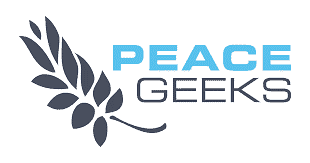
Grant – Project Support
PeaceGeeks is a Vancouver-based international technology non-profit that creates digital tools to support greater connection, peace, and safety for those who have been displaced. It develops products and research to transform newcomer journeys and strengthen human rights around the world. The partner organization in this initiative, Immigrant Networks, launched during the pandemic, offers an online on-demand peer-matching platform for newcomers.
With this innovative pilot grant, PeaceGeeks and immigrant Networks as partners will focus on testing a digital mentorship platform (Immentor) with 12 service provider organizations (SPOs) across three provinces in Canada to assess the interest in and feasibility of a shared tech platform among membership agencies for managing mentorship programs. The partners hope that a shared mentorship platform can improve newcomers’ access to mentorship and employability and allow more SPOs to start offering mentorship to their participants. The initiative is based on observations gleaned from a previous pilot project implemented by PeaceGeeks with funding from Immigration, Refugees and Citizenship Canada called Skilled Newcomers and Professionals Partnership (SNAPP).
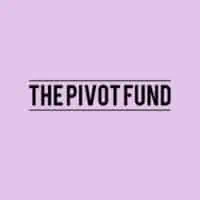
Grant – General Operating Support
The Pivot Fund is a new venture philanthropy organization dedicated to investing $500 million in independent community news outlets led by Black people, Indigenous people, and other people of color. Through grantmaking, development support, and strategic consulting, the Pivot Fund is disrupting journalism and philanthropy by centering and investing in culturally competent news organizations. The Pivot Fund provides capacity building, training, and opportunities for collaborative journalism.
This grant will assist the Pivot Fund in providing resources to ensure that more fact-driven, local, and trusted information reaches immigrant communities and communities of color across the U.S. here will be a focus on supporting two to three independent news outlets that inform immigrant communities in Georgia.

Impact Investment
Project Equity is a national non-profit with a mission of fostering economic resilience in low-income communities by demonstrating and replicating strategies that increase worker ownership. The Employee Ownership Catalyst Fund supports businesses that need capital to finance a transition to employee ownership. The Employee Ownership Catalyst Fund hopes to create a more resilient and secure future for America’s small businesses and frontline workers, particularly workers of color and immigrant workers.
With support from the WES Mariam Assefa Fund, Project Equity will provide working capital for employee ownership feasibility, setup, and advising. The grant will also assist in the creation and funding of a broad-based employee ownership vehicle of at least 30 percent employee ownership, via mid-term debt or debt-like financing.

Grant – General Operating Support
The Refugee Livelihood Lab (RLL) is a program within RADIUS, a social innovation hub of the Beedie School of Business at Simon Fraser University. Launched in 2018, RLL works to dismantle systemic barriers and generate opportunities for refugees, immigrants, and international students to pursue thriving livelihoods in the Greater Vancouver region. RLL seeks to facilitate systems change and achieve migrant justice by building power within communities through leadership development, convening, and advocacy.
RLL is developing two key initiatives to support the economic and social inclusion of immigrant and refugee leaders:
- Beyond Borders is an equity-focused social innovation program through which migrants of colour who are leaders in their community develop and prototype a social venture or service innovation that addresses socio-economic barriers.
- Trampoline: Ideas into Action! is a venture incubation program. Selected participants go through a highly participatory prototype validation and incubation process.
The ventures developed and launched by RLL participants will foster greater innovation in the sector and help grow the social entrepreneurship field in Canada. RLL will ensure that immigrant leaders are equipped with critical skills and knowledge that enable them to drive change in their communities and advance their careers.

General Operating
Rainbow Railroad is an international non-profit organization that helps LGBTQI+ people who are facing persecution for their sexual orientation, gender identity, or sex characteristics. In a time when there are more displaced people than ever, LGBTQI+ people are uniquely vulnerable due to systemic, state-enabled homophobia and transphobia. These factors can displace them in their own country or prevent them from escaping harm.
This grant supports Rainbow Railroad’s Safe, Settled, and Supported initiative, which provides comprehensive support to LGBTQI+ refugees throughout their resettlement in Canada. The initiative includes monthly financial assistance, network building for post-settlement services, community engagement for peer support, and a focus on systemic change to ensure LGBTQI+ newcomers can access employment, shelter, health care, and safe resettlement more effectively.

Impact Investing
The REAL People’s Fund (“the Fund”) is a California nonprofit public benefit corporation created to advance economic justice and opportunity for underrepresented communities in the East Bay area, specifically in Alameda and Contra Costa counties. “REAL” stands for revolutionizing our economy for all local people. The Fund was incubated in 2020 within the East Bay Community Foundation and is the result of a multi‐year collaboration among six grassroots nonprofit organizations with a shared vision to build economic power for historically underinvested communities in the East Bay. Founding organizations include The Alliance of Californians for Community Empowerment (ACCE), Asian Pacific Environmental Network (APEN), Communities for a Better Environment (CBE), Oakland Rising, Restaurant Opportunities Center (ROC) United, and Restore Oakland.
The investment would allow the Fund to implement a new community governance model and provide access to affordable capital for BIPOC-owned small businesses in the East Bay. The Fund challenges traditional approaches to deploying capital and places the community at the center of the decision-making process. In doing so, the Fund advances a more inclusive economy that gives community members a voice in how capital is deployed. Through the Fund, representatives of six grassroots organizations oversee a community-controlled loan fund supporting small businesses essential to the community’s economic health. The Fund will make loans to small, BIPOC-owned businesses based in Alameda and Contra Costa counties using more inclusive credit underwriting policies (i.e., relationship-based). Its loan products carry flexible terms and require no collateral. This initiative is expected to create and expand access to good jobs in the East Bay area, especially for those who face the largest barriers to employment.

Impact Investment
The Social Impact Fund is a partnership between the International Rescue Committee’s Center for Economic Opportunity (IRC-CEO) and the Refugee Investment Network (RIN). It directly provides financial access and inclusion to hundreds of immigrants and refugees across the United States. IRC-CEO is a certified community development financial institution (CDFI) which brings more than 15 years of experience making flexible, affordable consumer and microenterprise loans to borrowers who have little access to traditional financing, particularly those in refugee and immigrant communities.
Since launching in May of 2020, the Social Impact Fund (SIF) has made 240 loans totaling $525,000 financed. More than 64 percent of SIF borrowers have been in the U.S. for less than three years, and the cohort represents 35 countries of origin. Financial access is critical to economic mobility, yet many immigrants and refugees are unbanked or underbanked and as a result face barriers to capital needed to buy a car, start a business, further their education, or carry out other everyday activities. The RIN-CEO Social Impact Fund promotes upward economic mobility among immigrants and refugees in low-income households by supporting the development of financial resilience and filling gaps in available financial services.
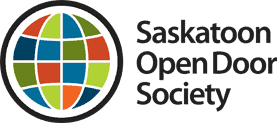
Grant – General Operating Support
Saskatoon Open Door Society (SODS) has provided services and programs to the newcomer community in Saskatoon for the past 40 years. SODS envisions a diverse and inclusive community where newcomers can fully participate in the economic, social, intellectual and cultural life in Saskatoon.
With this funding, SODS is educating BIPOC and newcomer communities in Saskatoon who are facing heightened levels of vaccine hesitancy. The project will incorporate vaccine awareness and readiness to encourage the safe use of the vaccine for all eligible people through group programming, social media, promotional materials, and providing transportation to newcomers.

Impact Investment
Social Economy through Social Inclusion (SETSI) is a Toronto-based non-profit committed to advancing inclusion, diversity, equity, and access in the impact investing ecosystem in Canada. Its mission is to create prosperity and abundance through social innovation. With an emphasis on supporting historically under-represented communities, SETSI aims to establish a thriving social economy for start-ups and emerging leaders.
The Fund is supporting SETSI’s Impact Investing Research Initiative (IIRI), an in-depth examination of the relationship between the African Canadian community and the impact investing ecosystem. The goal of this research initiative is to analyze the extent to which African Canadians are meaningfully engaged or systematically excluded from impact investing, and explore opportunities for partnership, collaboration, and innovation. SETSI seeks to bring transparency to the Canadian impact investing market, demonstrate what culturally safe and culturally appropriate capital looks like, create a foundation to address access issues, and build a movement of values-aligned investors.

Grant
Solid State Community Society is building a network of worker co-operative enterprises with youth from racialized migrant families. This co-op of co-ops launched in 2017 and operates in Surrey, BC – a very diverse but segregated city, full of tensions, frustrations, and violence, especially affecting youth from racialized migrant and Indigenous families. The aim is for the co-ops to grow and become autonomous but never truly independent. Solid State hopes they will remain entwined formally and informally, contributing to the larger co-op of co-ops that keeps exploring different, non-exploitative, non-extractive ways to work and organize together.
With this funding, Solid State is extending its work to collaborate with grassroots organizations and low-income racialized communities that are often ignored and invisible in Surrey and build new, culturally appropriate and durable workers co-ops as a result. Solid State plans to launch at least 10 new co-ops over two years in close partnership with local organizations and support them with Solid State’s institutional resources and their co-op of co-ops.
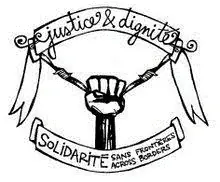
Grant – General Operating Support
Solidarity Across Borders (SAB) is a network of migrants and allies who organize together to support individuals and families confronting an unjust immigration and refugee system, in particular those living without status or with precarious immigration status (undocumented). As a movement, SAB is organized around demands for an end to deportations, detentions, and double jeopardy, as well as implementation of a continuous, inclusive, and comprehensive regularization program (the “status for all” campaign).
This grant will help SAB keep its emergency fund operational and open beyond January 2023, when its current funding was forecast to expire. This emergency fund provides direct support to migrants to meet their essential needs. That includes funding for rent, food, medication, and transportation, as well as fees for applications to regularize status or obtain a work permit. This fund is often the only support available to migrants secure immigration status who cannot access government services. Most people who receive support through SAB’s emergency fund are part of the network and are on the front line of work for structural change.
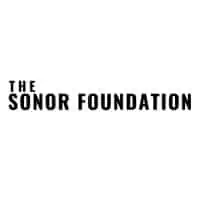
Project Support Grant
Sonor Foundation is a Toronto-based foundation that supports high-impact organizations to provide necessary services to underserved communities through national impact challenges.
With this funding, the Sonor Foundation launched the Transcend Impact Challenge. The initiative awarded funding to nine organizations that support trans and gender diverse communities through supportive environments, economic and financial stability and inclusion, housing, education, and health care access.
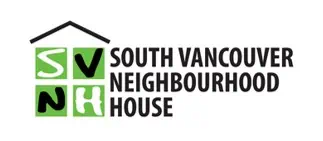
Grant
South Vancouver Neighbourhood House (SVNH) is a community-based organization that focuses on connecting people and strengthening neighbourhoods in South Vancouver. Its goal is to develop harmonious relationships among community groups of different cultural, economic, religious, and social backgrounds. SVNH currently offers a variety of programs and services that support approximately 7,000 individuals and their families each year.
South Vancouver has a population of over 100,000 people, with 80 percent people of color, 56 percent newcomers, and a high density of non-English speakers. Many of these residents have been underrepresented in municipal, provincial, and federal systems, which has led to long-term under-investment across the region. This project will bring together residents, business owners, employers, community agencies, and other stakeholders and provide a platform for community members to engage with one another, identify needs, and advance systems change from the grassroots level. Through community outreach and dialogues, SVNH is supporting residents to create change and advance equity in their neighbourhoods.

Project Support
St. Bernard Project (SBP) is a non-profit disaster relief organization with a mission to shrink the time between disaster and full recovery. The organization ensures that disaster-impacted citizens and communities recover in a prompt, efficient, and predictable manner. It achieves that with an “Under One Roof” model, incorporating the many facets of a volunteer-based rebuilding program into one entity. The project recruits and trains volunteers, provides skilled site managers, offers health services, and coordinates fundraising.
This multiyear funding is supporting SBP’s Share Program: Home Equity and Disaster Relief for Immigrants and Refugees, addressing capacity needs and working with local non-profits to increase recovery time for disaster-impacted communities across the nation. The partnership will select around 15 to 20 non-profit partners through grant funding, training, and capacity assistance via placement of Americorps members.
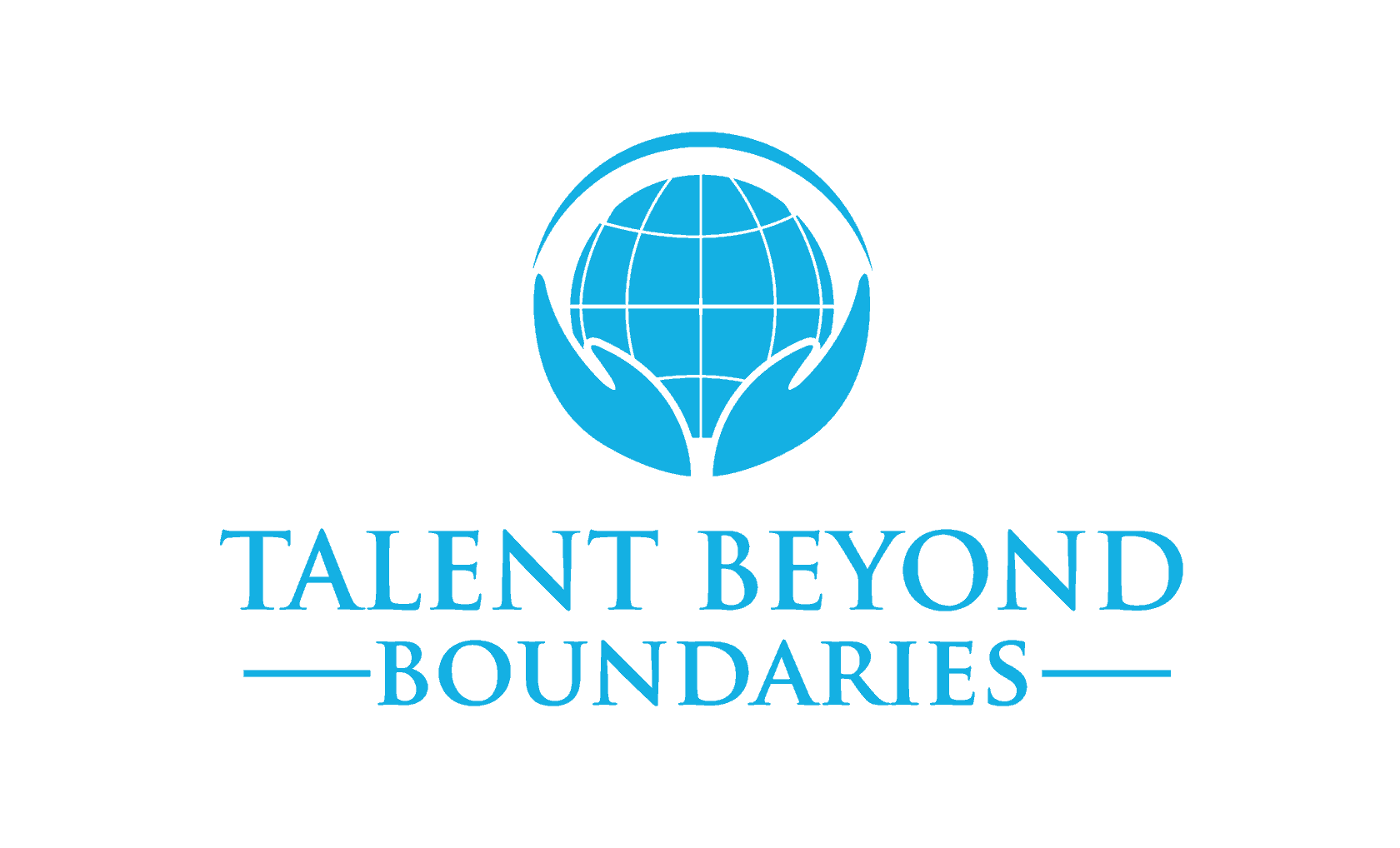
Grant
Talent Beyond Boundaries (TBB) is pioneering labour mobility as a complementary solution to refugee resettlement in multiple countries. It works to match refugees with career opportunities and support forcibly displaced people to leverage their skills to secure their futures. Through TBB’s model, refugees earn employment in a third country and embark on economic migration pathways, regaining regular status and rights while securing their livelihoods. TBB is collaborating with Jumpstart Refugee Talent (Jumpstart) for this initiative.
TBB is building on the Canadian federal government’s expansion of access to the Economic Mobility Pathways Pilot, a program welcoming displaced people through Canada’s economic immigration streams. TBB aims to increase the number of refugees directly benefiting from this program in Canada. In partnership with Jumpstart, the two organizations are establishing the Refugee 500 Taskforce to advance this goal, a coalition of Canadian businesses, refugee-serving organizations, immigrant specialists and refugee leaders. At the same time, TBB and Jumpstart will enable Canadian businesses to search for candidates in the Talent Catalog, a unique online platform to collect comprehensive data on the professional profiles of displaced people.

Grant – Project Support
The Tamarack Institute, founded in 2001, develops and supports collaborative strategies to engage individuals and institutions in solving major community issues across Canada and beyond. Tamarack uses a multi-sectoral strategy—working with non-profit leaders, policymakers, advocates, businesses, and individuals with lived experience—to drive impactful community change.
Tamarack is designing and implementing an innovative participatory grantmaking pilot in a selected community in Ontario. Through the pilot, the community will identify projects and organizations to fund that help remove economic barriers and build inclusive economies for immigrants and refugees in this community. Tamarack is engaging a group of community-based stakeholders to identify needs, co-design approaches, and make funding decisions. This project will also help the Fund learn about participatory grantmaking and use what it learns to more effectively address power imbalances and advance equity by refining its funding strategies.
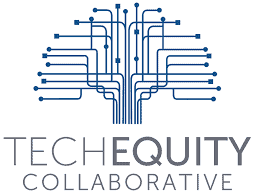
TechEquity Collaborative envisions a world where the growth of the tech industry creates economic prosperity for everyone and where tech sector employees and companies are engaged and active participants in making our economy equitable. The mission is to mobilize tech workers and companies to advance structural change that addresses economic inequity at its roots.
This grant builds on TechEquity’s other efforts such as affordable housing policy and a labor standard for workers in low-wage jobs that serve tech company campuses, including janitors, security officers, shuttle drivers, and food service workers. TechEquity is continuing to support meaningful employer practice changes industry-wide by influencing the context in which tech companies operate and by promoting adoption of the Responsible Contracting Standard, an effort to ensure quality jobs for contract workers in the tech industry.
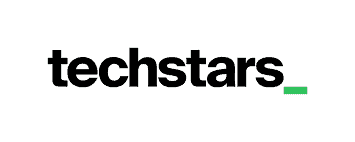
Project Support Grant
Techstars is a pre-seed investor that provides access to capital, mentorship, and other support for early-stage entrepreneurs.
This grant will support Techstars Workforce Development (WFD) Accelerator in providing mentorship and funding to early-stage workforce technology ventures, prioritizing impact and founders with lived experience with a focus on underinvested in and overlooked entrepreneurs with relevant lived experience – including immigrants, refugees, and BIPOC. The accelerator will be supported for three years.

Grant – General Operating Support
The Drivers Cooperative or Co-Op Ride is an American ridesharing company and mobile app that is owned collectively by the drivers. It specializes in paratransit and non-emergency medical transportation. The cooperative consists of 9,000+ for-hire vehicle drivers in New York City, where 91 percent of all for-hire drivers are immigrants and 70 percent are the primary wage earners in their households. Its mission is to end exploitative conditions in the for-hire vehicle industry.
This bridge renewal grant continues to support The Drivers Cooperative in sustaining its success, supporting its general operating capacity to make critical investments and weather unexpected challenges during a crucial time of growth for the organization.

Project Support Grant
Launched in 2019, The Local is a non-profit magazine addressing urban health and social issues in Toronto, reporting from immigrant suburbs. Stories cover a range of underreported concerns in the city, from poverty and homelessness to mental health, aging, and food insecurity. Since its launch, The Local has been reporting from Toronto’s immigrant communities that are too often ignored or misunderstood. The Local aims to fill a role that traditional media neglects—turning complex policy issues into compelling narratives, and addressing problems that are pressing and ongoing, even if they don’t have a news hook.
This grant supports general operations for The Local and the publication of a dedicated quarterly issue focused on immigration. One in four Canadians have come to the country as an immigrant; last year, Canada welcomed close to 500,000 newcomers, with one in three settling in Toronto. The immigration issue will include personal essays, data journalism, and investigations, to look at how newcomers are settling in Toronto and explore issues that matter to them, such as housing and employment. The Local is shifting power through accessible, community-driven journalism and advancing justice by transforming the local news landscape.

Project Support
The Momentum Centre (TMC) is a leader in economic and workforce development. The organization works extensively with employers and industry, youth, and equity-deserving groups such as Black people, Indigenous people, and other people of colour, youth, ex-offenders, immigrants, newcomers, and refugees to advance Manitoba’s labour market objectives. Using a demand-driven approach, TMC operates in partnership with employers to provide employability and leadership training, professional development, and work experience, giving participants the opportunity to translate their knowledge and competencies to align with employer needs.
With support from the Fund, TMC will implement a project to address labour market demand and skill shortages in the STEM fields by developing a sustainable process to increase access to work-integrated learning opportunities for international students and employers. In order to foster more equitable, diverse, and inclusive workplaces, TMC will provide professional development, employability skills training, and networking opportunities for students to prepare them to transition to sustainable employment. TMC aims to retain more international students while supporting meaningful labour market transitions into STEM in Manitoba, Canada.

Project Support
The Refugee Centre (TRC) is a registered nonprofit based in Montreal that aims to provide a sustainable structure of integration for refugees and immigrants in Canada. Its organizational structure is based on a multifaceted approach—educational, social, and economic—that encompasses the obstacles refugees and immigrants face today. TRC provides an array of services including language classes, legal aid, academic aid, employment aid, newcomer orientation, and wellness support. Additionally, TRC strives to support vulnerable individuals, including undocumented refugees, immigrants, low-income individuals, members of racialized communities, members of LGBTQ2S+ communities, and Indigenous individuals.
To facilitate career pathways and workforce development for newcomers and refugees, TRC will create a system of NGO and employer partnerships. Through such partnerships, TRC will provide training workshops to partner employers. Employers will learn about common barriers for newcomers and refugees in recruitment, hiring, promotion, and retention practices, as well as best practices for inclusive policies. Approximately 250 to 300 newcomers and refugees in Montreal will receive wraparound support. TRC’s initiative will assist newcomers and refugees who are underemployed, unemployed, or precariously employed, including those with nonrecognized or unregulated degrees who are currently working low-wage positions in Montreal.

Grant – Project Support
Toronto Community Benefits Network (TCBN) represents a coalition of more than 85 community and labour organizations, including workforce development agencies, learning institutions, and funders. TCBN cultivates and supports the implementation of community benefits agreements (CBAs) with transit and infrastructure development projects in the Greater Toronto Area (GTA) to increase apprenticeship, training, and employment opportunities for communities, including newcomers, who face barriers to employment.
With this new grant, TCBN will recruit, train, and develop community benefits ambassadors—emerging leaders from TCBN’s pool of Black and other racialized individuals who have already been successfully placed in construction trades or professional, administrative, and technical (PAT) jobs. The ambassadors will support TCBN’s campaigns for community benefits agreements and quality jobs in neighbourhoods where massive public infrastructure projects are imminent or occurring. TCBN will provide ambassadors with knowledge, skills, and resources to help build communities that are prepared to negotiate a CBA.

General Operating
Toronto Workforce Funder Collaborative is a group of philanthropic-minded organizations that aims to improve workforce development and create a more equitable labor market and economy across the Greater Toronto Area (GTA).
With this general operating support grant, the collaborative will continue to advance its mission to increase access to quality jobs and support employer investment in the development of their workforce.

General Operating Support
Upwardly Global is a national non-profit with a mission to eliminate employment barriers for immigrant and refugee professionals and advance the inclusion of their skills into the U.S. economy. The organization envisions an equitable, welcoming country that embraces full diversity of our workforce.
With support from the WES Mariam Assefa Fund, Upwardly Global will be able to educate and engage employers and policymakers so they are equipped to be informed, culturally champions of immigrant and refugee hiring and workforce inclusion, with the aim of transforming systems that impact internationally trained and educated immigrants in the U.S. The organization will also expand efforts of the past two years to engage employers; providing education, skills, and training for job seekers; and deepen advocacy and policy efforts on behalf of just systems.
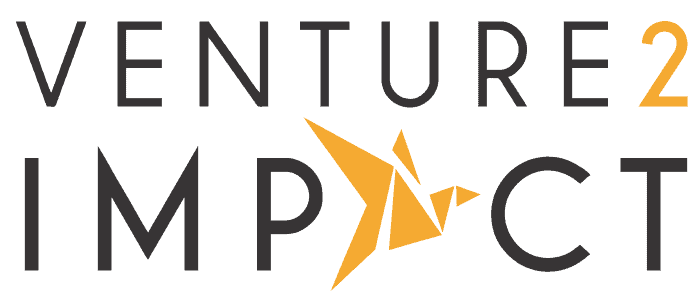
Grant – Project Support
Venture 2 Impact (V2I) uses human-centred design to solve complex challenges by linking global communities to skilled volunteers. Working with corporate partners, such as Google, Netflix, and Salesforce, V2I has launched and developed countless programs to deliver workforce development programs, including training and mentorship for formerly incarcerated men and women, and survivors of human trafficking. Their work has helped NGOs and people, especially women and girls, unlock their potential through training, mentorship, and technical tool development in North America, Asia, Europe, and Africa.
Across Canada, recent immigrants and refugees face high rates of both underemployment and unemployment, even though the country faces a shortage of skilled labour. To address these systemic barriers, V21 is partnering with Elevate Talent, a not-for-profit committed to uniting the world’s innovators to solve society’s greatest challenges. Together the two organizations developed Future Link – a pilot program that will provide the tools that employers need to create more inclusive and equitable environments for refugee, newcomer, and immigrant professionals to retain employment and grow in their careers and improve tech training to set job seekers up for success. The Fund’s investment will support further access to career mentorship and networking opportunities for refugees, immigrants, and newcomers.
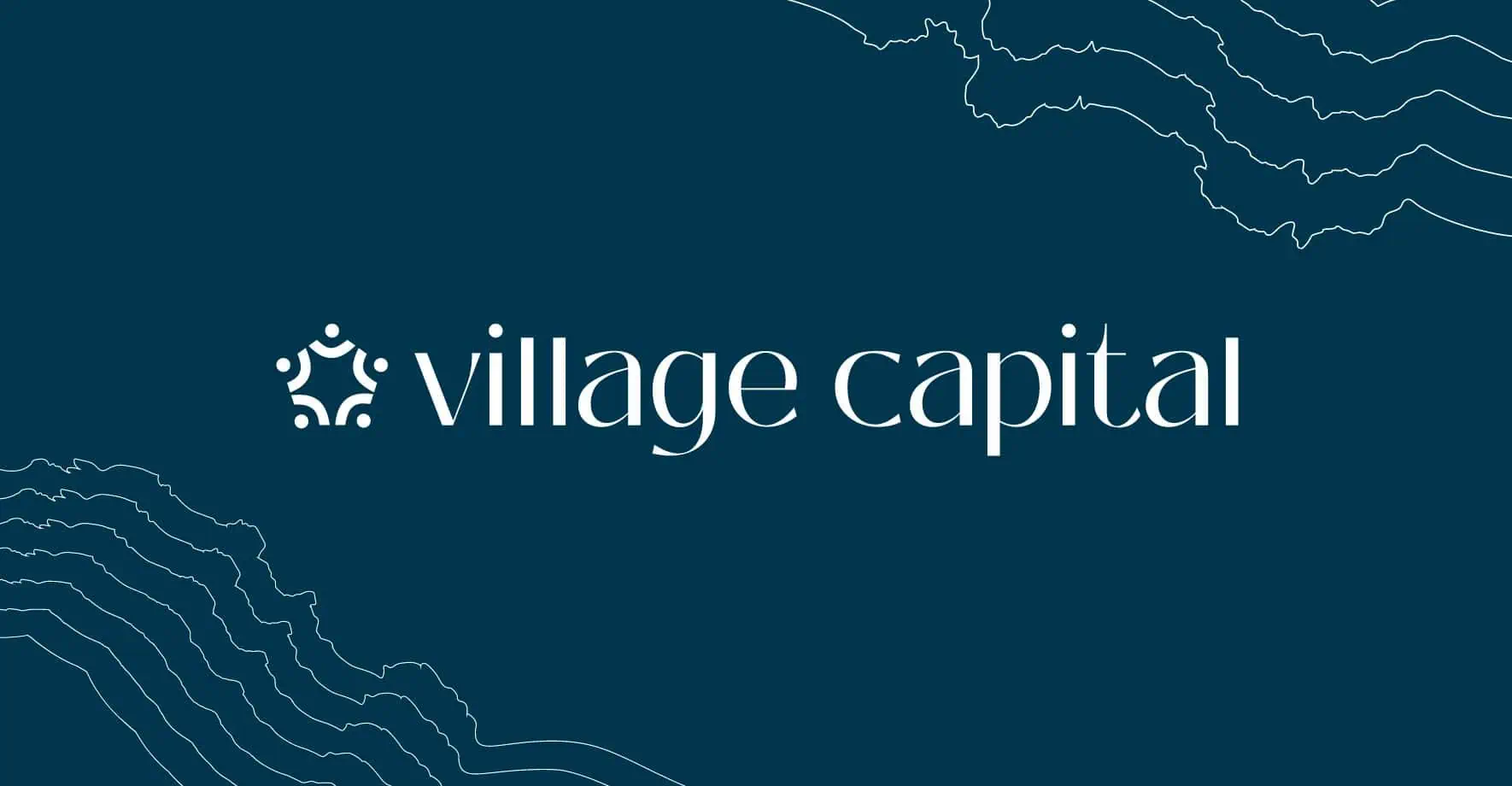
Project Support Grant
Village Capital supports and invests in early-stage social entrepreneurs and startups across thematic areas in emergent sectors including climate innovation, economic mobility, and equitable access to essential services.
In partnership with the WES Mariam Assefa Fund, Village Capital launched the Climate Justice for Migrants and Communities of Color initiative. This accelerator program is supporting startups creating inclusive solutions for immigrants, refugees, and communities of color disproportionately impacted by climate change in the United States.
Village Capital is training and supporting 10-12 startups to work towards issues like climate change and increasing economic opportunity for these underrepresented communities.
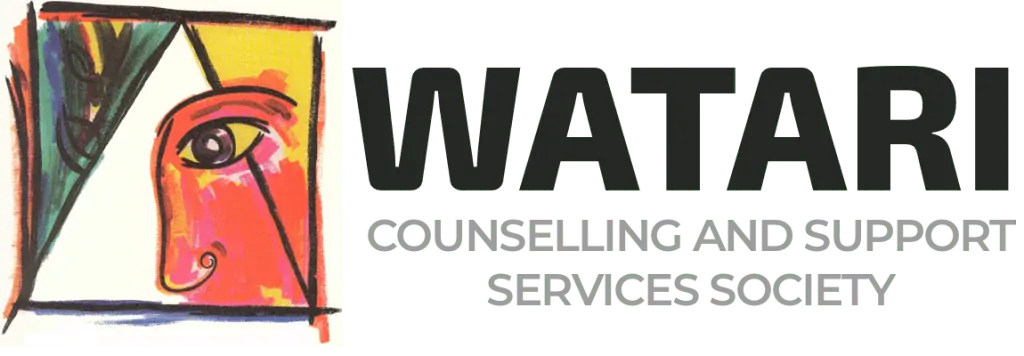
Grant – General Operating Support
Watari has facilitated meaningful change and provided a bridge to healthier possibilities in at-risk children, youth, families affected by substance misuse or mental health issues in the Downtown Eastside and the Lower Mainland since 1986. Their key success comes through innovative, community-driven, and supportive programming based on an individual’s innate strengths, capabilities, and desire for wellness to the communities we support. During these challenging times, street-level community outreach, counselling services, food security programs, and community and public education projects are still being delivered to marginalized communities.
With this funding, Watari is supporting the Vancouver Coastal Health, Island Health, and Ray Cam Cooperative Centre, running vaccination clinics. Watari’s vaccine clinics do not require IDs to limit the anxieties of undocumented persons.

Grant – General Operating Support
Workers’ Action Centre (WAC) is a worker-based organization committed to improving the lives and working conditions of people in low-wage and unstable employment. WAC organizes for decent work with a belief that the leaders in the fight for decent work should be the workers directly affected by poor working conditions. WAC’s members are workers with precarious jobs and are mainly recent immigrants, migrants, racialized workers, and low-wage workers who face discrimination, violations of their rights, and unstable employment.
With this general operating support grant WAC will continue its much-needed and impactful work helping immigrant and migrant workers navigate the realities of the labour market, providing support to workers facing violations of their rights, and advancing policy solutions to address systemic inequities. Some key focus areas for WAC in the next two years include continuing support of workers in the community, providing new modalities of worker leadership development and training to involve more workers, and continuing to advocate for important issues involved in regularization, employment insurance, gig workers’ rights, and temp agencies.

Project Support
Workforce Matters is a national network of grantmakers that draws on expert and practitioner knowledge to collaboratively strengthen workforce development philanthropy in a way that empowers workers, learners, and job seekers to realize their full potential; dismantles inequities based on race, gender, ability, and other individual characteristics; and advances equitable education and employment outcomes for youth and adults.
This grant builds on the first grantmaking round of Workforce Matters’ Fund for Workforce Equity in 2022, a pooled fund from various philanthropic organizations to award $1 million in grants to 15 organizations around the country. These organizations were selected to pilot or extend efforts to authentically engage and center workers and learners of color in designing and implementing workforce programs and policies. Workforce Matters seeks to make a second round of grants through the Fund for Workforce Equity in 2024.
Stay in Touch
Thank you for your interest in the WES Mariam Assefa Fund. We’ll share updates on the Fund’s efforts, what we’re learning, and opportunities through our email list.